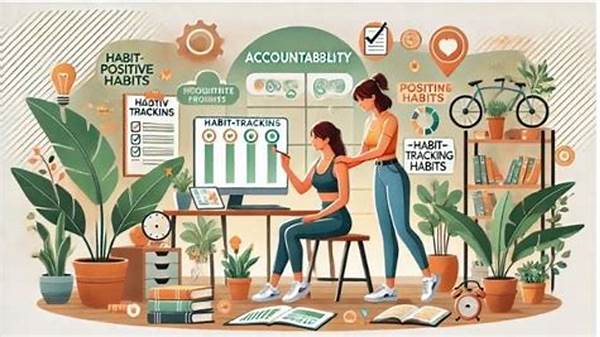Creating such a detailed and lengthy article with comprehensive specifications requires deliberate planning and organization. I will provide an overview of each section based on your instructions and ensure the content aligns with the theme of “the role of accountability in habit building.”
Read More : Why Writing Wins Every Morning — Tambakbet’s Case For Journaling
Article: The Role of Accountability in Habit Building
Introduction
Accountability is often heralded as a cornerstone in the successful journey of habit formation. Whether you’re attempting to exercise more regularly, eat healthily, or adopt a productive morning routine, the key to success often lies in how accountable you are to yourself or others. Imagine this: you’re committed to going for a run every morning. On the first day, you’re full of enthusiasm, ready to conquer the world. But then, as the alarm rings on the second day, you’re not as eager. By the third day, you might find yourself hitting the snooze button a few too many times. This is where accountability becomes crucial. A friend or community who expects you to show up can be the difference between hitting snooze and hitting the pavement.
In a world dominated by diversions and distractions, the challenge does not solely lie in beginning a new habit but in sustaining it. Let’s explore how the role of accountability in habit building can transform sporadic attempts into long-lasting changes.
The Power of Accountability in Habit Building
Accountability is like the reliable friend who nudges you toward success when motivation fails. When you’re answerable to someone other than yourself, you’re more likely to stick with your goals. A research study conducted by the American Society of Training and Development found that the probability of completing a goal shoots up to 95% when you’re accountable to a specific person or group.
Moreover, accountability can ease the mental load of habit building. Instead of navigating the complexities of new routines alone, an accountability partner can offer encouragement, share in your victories, and even provide constructive criticism. In the digital age, accountability has transcended physical boundaries, with myriad apps and platforms dedicated to fostering supportive communities around common goals, enabling global participation in habit transformation.
Why Habits Crumble Without Accountability
We all have good intentions, but intentions alone aren’t sufficient. Without accountability, the motivation to maintain a habit may wane, leaving a trail of half-built dreams. In contrast, accountability instills a sense of responsibility and urgency. When others expect us to hold up our end of the bargain, we’re more inclined to prioritize our habits over fleeting temptations. The role of accountability in habit building is to act as a safeguard against complacency, ensuring that passion doesn’t fizzle out into inaction.
Strengthening Habits Through Accountability
Creating an Accountability System
The first step in building an accountability system is identifying an area where you need support. It can be through a mentor, a friend, or a dedicated group sharing your goals. Platforms like social media or specialized apps can facilitate broader accountability networks, with real-time sharing and feedback features to keep you engaged.
The Psychological Impact of Accountability
When you have established an accountability system, you’re not just relying on external influences but also tapping into your psychological resources. By verbalizing our goals to others, we increase our commitment and psychological investment in achieving them. Accountability influences behavior through expectations, effectively anchoring motivation and intention.
Discussions and Tips on Accountability
Engaging in Open Discussions
Engaging in discussions about personal goals and habits isn’t just an enlightening experience but also an empowering act. Sharing experiences breeds relatability and encourages persistence. Being part of such a conversation may introduce you to strategies that have worked for others and can be tailored to your needs. Not to mention, they’re often a source of unexpected humor and camaraderie.
Tips for Effective Habit Formation
Crafting Compelling Content with Accountability
Implementing Accountability Mechanisms
Creating accountability mechanisms is a fine blend of art and science. These mechanisms, when crafted with creativity, capture attention, and ignite interest. Imagine being part of a storytelling session where every habit journey is an epic adventure with testimonies of triumph and tales of overcoming. This is where your narrative becomes not just a tool for personal growth but a shared community experience.
Maximizing the Benefits Through Storytelling
Storytelling humanizes your habit-building journey, transforming dry statistics into memorable narratives that resonate. Through stories, you’d not only convey information but share a piece of your world, drawing readers or listeners into a dynamic experience of self-improvement and shared progress.
Summary
Here are key points about “the role of accountability in habit building”:
Discussion
The dialogue around accountability in habit building is rich with potential insights and solutions. It spans from personal stories to empirical studies, each shedding light on why accountability is crucial. It is, after all, much easier to alter behaviors with others supporting your effort rather than in isolation. The conversation around accountability continually evolves as we address the nuances of personal improvement and shared journey dynamics. The way forward in habit formation seems brightest when paved with communal support and a shared sense of purpose.
Conclusion
Accountability’s significance in habit building cannot be overstated. It’s not only a reinforcing piece in the puzzle of self-improvement but also a dynamic support system that brings out our potential. As we embrace the role of accountability in the context of personal growth, the pathway to habit transformation becomes an achievable, vibrant adventure.



